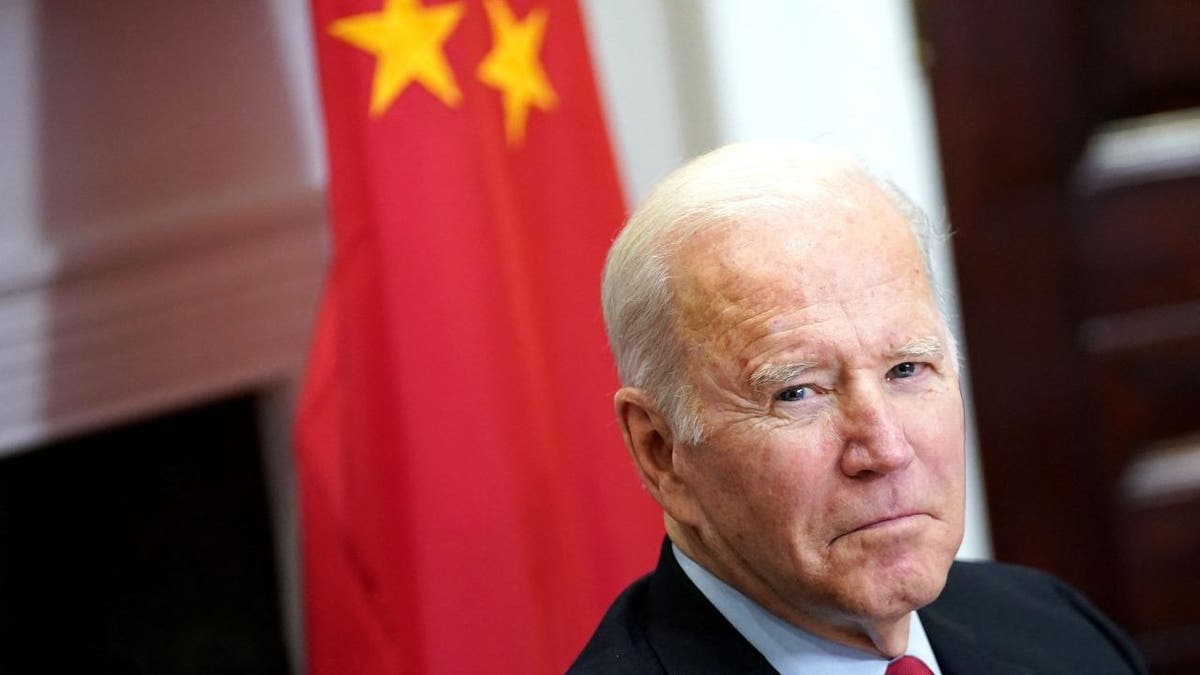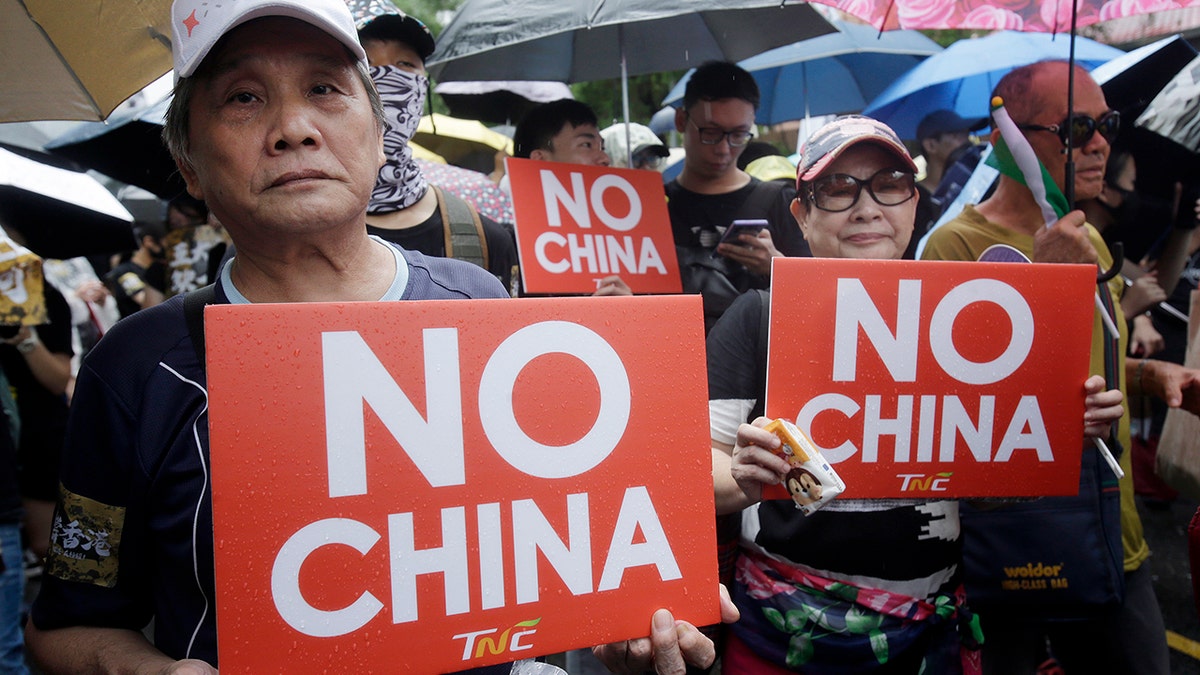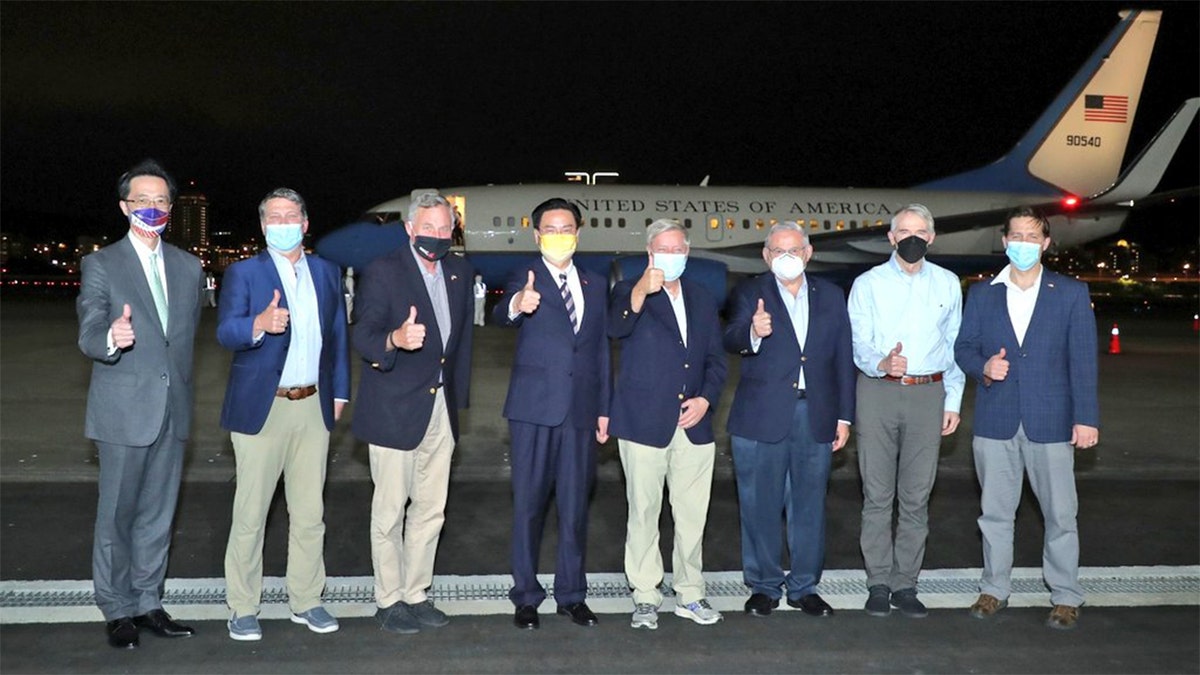Fox News Flash top headlines for May 10
Fox News Flash top headlines are here. Check out what's clicking on Foxnews.com.
Beijing on Tuesday slammed the U.S. for changes the State Department made on its website regarding Washington-Taipei ties that appeared to distance the island from mainland China.
"This kind of political manipulation on the Taiwan question is an attempt to change the status quo in the Taiwan Strait, and will inevitably stir up a fire that only burns [the U.S.]," Chinese Foreign Ministry spokesman Zhao Lijian said, according to Reuters.

President Biden meets with China's President Xi Jinping during a virtual summit from the White House, Nov. 15, 2021. (Mandel Ngan/AFP via Getty Images)
CHINA LAGS IN TAIWAN INVASION AMBITION AND US NEEDS TO TAKE ADVANTAGE, EXPERT SAYS
The spokesman’s comments came just one day after Taiwanese news outlets first reported on the changes that occurred earlier this month.
The State Department updated its "Fact Sheet" and reworded the statement outlining U.S.-Taiwan relations.
The department removed wording that definitively identified the island as falling under the ruling of the Chinese government as well as Washington’s opposition to Taiwan's independence.
According to a Taiwanese publication that used software to locate the department’s previous webpage, the phrase stating that the U.S. acknowledges the "Chinese position that there is but one China and Taiwan is part of China" was removed.
The statement that said, "The United States does not support Taiwan independence" was also removed.
The updated Fact Sheet still notes that the U.S. acknowledges the one-China principle but says Washington’s "cooperation with Taiwan continues to expand."
But Lijian called the move "a petty act of fictionalizing" and accused the U.S. of "hollowing out the one-China principle."

Hong Kong students and Taiwanese supporters hold slogans during a march in Taipei, Taiwan, Sunday, Sept. 29, 2019. (AP Photo/Chiang Ying-ying)
US, PARTNERS LAUNCH PLAN FOR 'FUTURE' OF INTERNET, AS CHINA, RUSSIA USE 'DANGEROUS' MALIGN PRACTICES
"There is no change to our ‘one-China’ policy," a State Department spokesperson told Fox News, noting that U.S.-Taiwan ties are "guided by" the Taiwan Relations Act, the three Joint Communiques, and the Six Assurances. "Our commitment to Taiwan is rock-solid and contributes to the maintenance of peace and stability across the Taiwan Strait and within the region.
"We urge Beijing to cease its military, diplomatic and economic pressure against Taiwan and instead engage in meaningful dialogue with Taiwan," the spokesman added.
Taiwan and China have shared a complex history since the government of the Republic of China (ROC) relocated to the island in the western Pacific in 1949 amid conflict with the Chinese Communist Party (CCP).
Taiwan identifies as a sovereign nation with democratic values, but it is officially recognized by China, the United Nations and the U.S. as part of the one-China policy.
China has long made clear it intends to bring the island back under complete CCP control and Western nations fear a replica of the deadly campaign that has been carried out by Russia against Ukraine.
There are distinct differences between the Russia-Ukraine war and China’s relationship with Taiwan – including militaristic differences in strategic capabilities and the U.S.’s pledge to defend Taipei under the Taiwan Relations Act.

Sens. Lindsey Graham, Bob Menendez, Richard Burr, Rob Portman and Ben Sasse, and Rep. Ronny Jackson arrive in Taiwan, April 14, 2022. (Ministry of Foreign Affairs of Taiwan)
CLICK HERE TO GET THE FOX NEWS APP
But trade – which the U.S. is deeply reliant on China for – will almost certainly play a larger role in shaping any potential conflict in East Asia.
"Taiwan has become an important U.S. partner in trade and investment, health, semiconductor and other critical supply chains," the department noted on its updated Fact Sheet.
The U.S. has vowed to continue to provide Taiwan with the security assistance necessary to maintain a "sufficient self-defense capability."









































